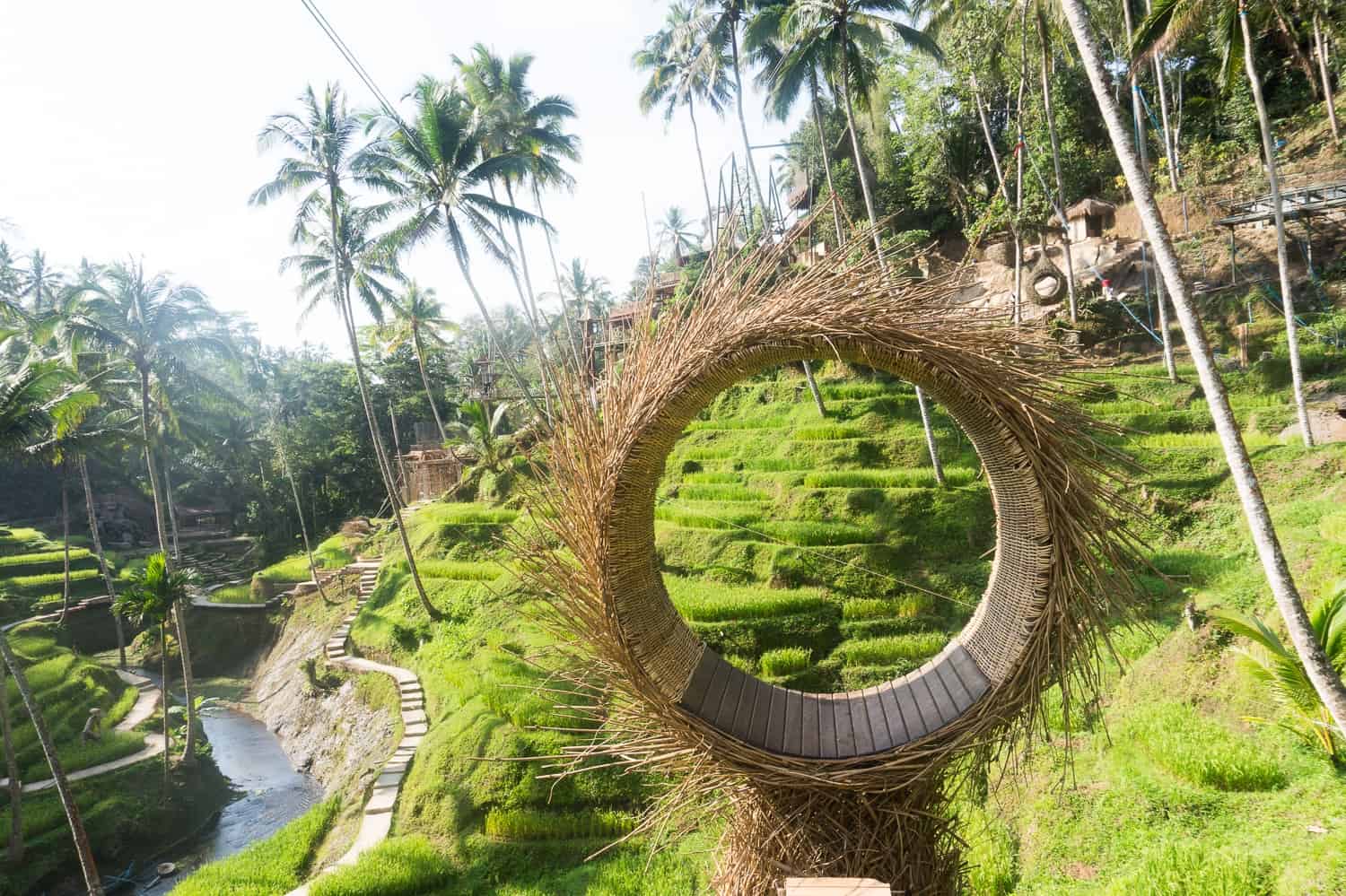The Bali Swing
If you’ve been on Instagram lately (or really, ever), and searched hashtags for #travel, #bali, #girlswhotravel, or something along those lines, you’ve probably come across the iconic Bali swing photos. Although often accompanied by a girl in a long, flowy dress, these shots are popular with a wide range of travellers. The subject of the photograph sails over the lush green rice terraces of Bali on a long swing, perfecting capturing the idyllic and picturesque Balinese island, right?
Imagining how this might work, I sort of pictured a local rice farmer who had set up a swing on his property, and tourists paid a small amount to visit and take photos over his fields. In reality, there are quite a few purpose-built ‘Instagram parks’ around Ubud, designed to capitalise on the popularity of photos like these.
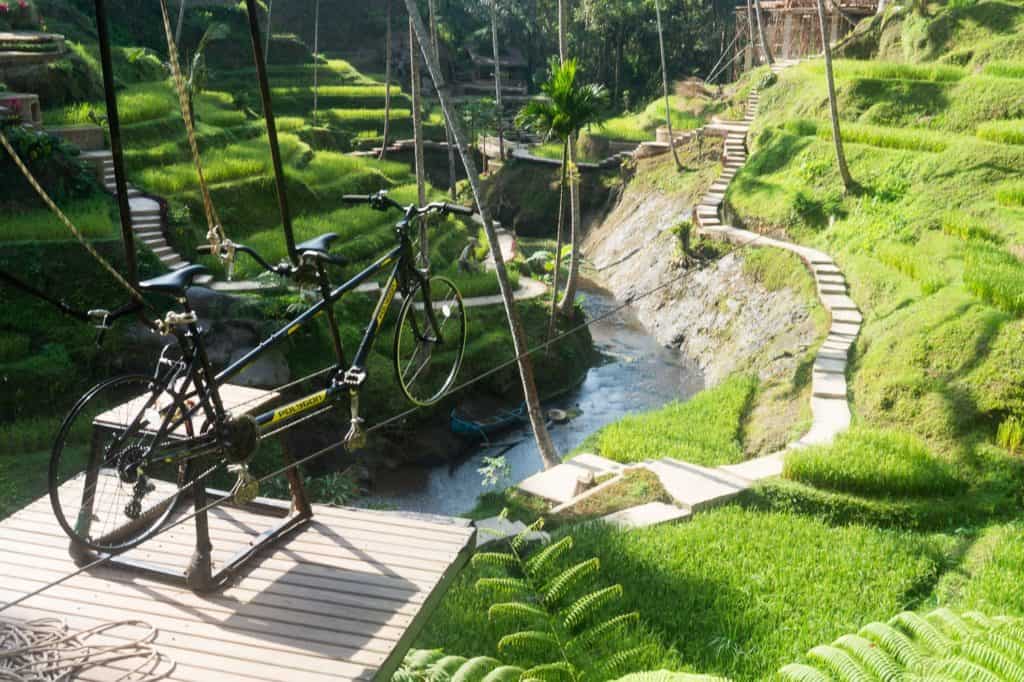
On a recent trip to Ubud, we were taken to one of these parks on a day tour so some members of our group could experience the swing, which definitely sounded like a fun thing to try. If you’re familiar with Bali, you might know that public transport is not really an option, so the best way to see the island is via a tour guide or a motorbike. We had booked a day tour to see some sights outside Ubud.
However, we were also disappointed to see that this place we were taken to also offered civet coffee tours (read more below), which are not above board in most cases when it comes to ethical treatment of animals. As it was part of an organised tour, we went in, however I am not naming the name of the park for this reason (email me if you want to know more). If you’re looking for swing photos in Ubud, I’d research to make sure the park you visit doesn’t also include coffee experiences. Although, as all the parks seem to operate in a similar fashion, here’s what to know before you go. But before we proceed-
A few words on civet, or luwak, coffee
The reason I haven’t mentioned the name of the swing park above is because they also promote civet, or luwak, coffee tours. Civets are small, nocturnal mammals found in Indonesia. They eat and then digest coffee cherries, which are then harvested and used to produce a rich, rare, and expensive coffee. In theory, sounds ok, right?
In reality, the beans are not always harvested from the wild. Civets are kept in small cages and fed to produce high amounts of coffee bean. Why? To meet tourist demand for the coffee. The truth is, if you’re buying or tasting civet coffee in Indonesia, it’s probably come from animals that are not living a good life. As a tourist, your opinion matters because businesses depend on tourism dollars. If you’re taken somewhere on a tour that seems suss when it comes to animal welfare, speak up. Tell the staff, write an email after, or tell your tour guide that you don’t support civet coffee (which we did).
Personally, I felt uncomfortable being somewhere that offered this tourism attraction. Although I can’t say 100% if animals were present in the swing park we visited, it was highly likely. It’s slightly embarrassing to write a blog about inadvertently visiting a place that didn’t sit right with me, however, I am sharing my experience to hopefully help others.
If tourist demand ends, the demand for coffee will end, and tourism providers can hopefully provide swing experiences that don’t also include coffee tours.
Wait, what’s an Instagram amusement park?
Basically, a park with a paid entrance fee that you can enter, for the purpose of taking photos. Depending on the place, you may pay per swing ride, or a flat day fee for all attractions in the park. Inside, you’ll find tons of photo opportunities, such as the bird’s nest alcoves, walkways through the terraces (planted specifically for photo opps, but still impressive), suspension bridges, heart-shaped frames for couples’ photos, etc. It’s actually really surreal to see- the impact on social media has created an entire new tourism industry. Of course, the photos don’t need to be taken for the purposes of Instagram, but I imagine that would be the driving force behind it.
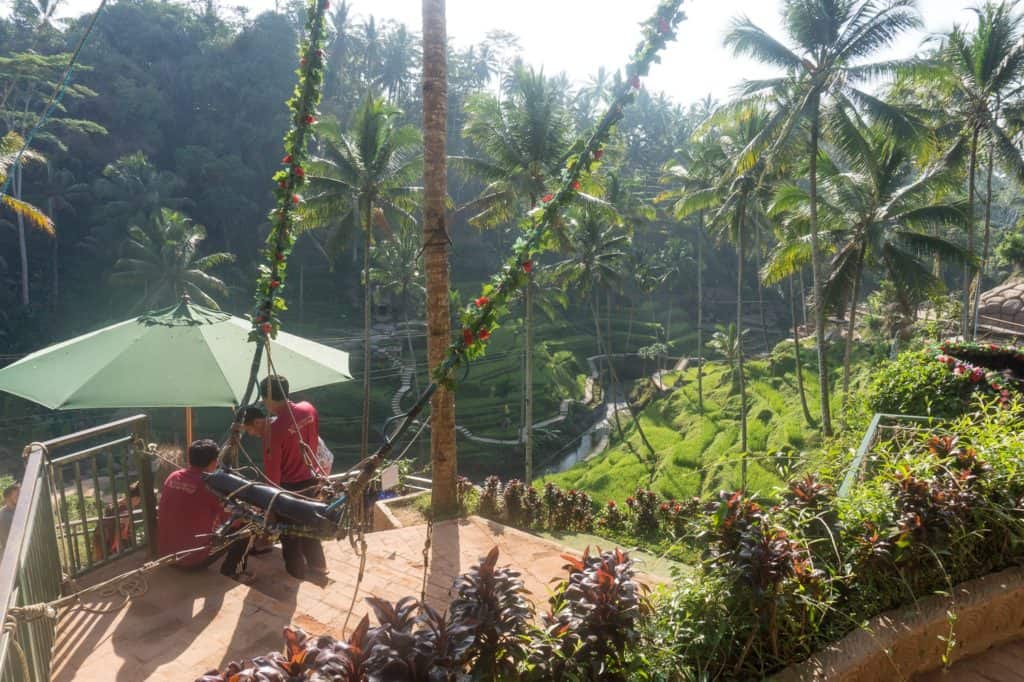
What is the Bali swing actually like?
While I didn’t swing myself, I did watch a lot of others. You’re harnessed in (this is important- you’re going pretty high up into the sky), and then pushed by staff to get going. Once in motion, you swing maybe 5-10 times, flying above the beautiful view below you, which is most likely of the rice terraces.
Is it fun? Yea, I am sure it would be pretty exhilarating, especially on the really tall swings. Channel your inner Insta girl and pose your heart out, just make sure you have an Insta-husband below to capture it all.
The cost varies per location, but I’d say budget on $15-20 AUD if you’re planning on swinging.
Are there any other swings near Ubud?
Yes! That being said, I can’t tell you where they all are, as some are small, family operations, as I sort of first envisioned. If you’re staying in Ubud and planning to do the Campuhan Ridge Walk, there is a small swing about 1km into the walk on your right-hand side that I saw. Personally, I think a small swing like this would be the way to go, if you’re wanting a photo, as they’re likely to be less visited, meaning your photo won’t be the same as everyone else’s. Your payment to swing is most likely going directly to a local member of the community as well.
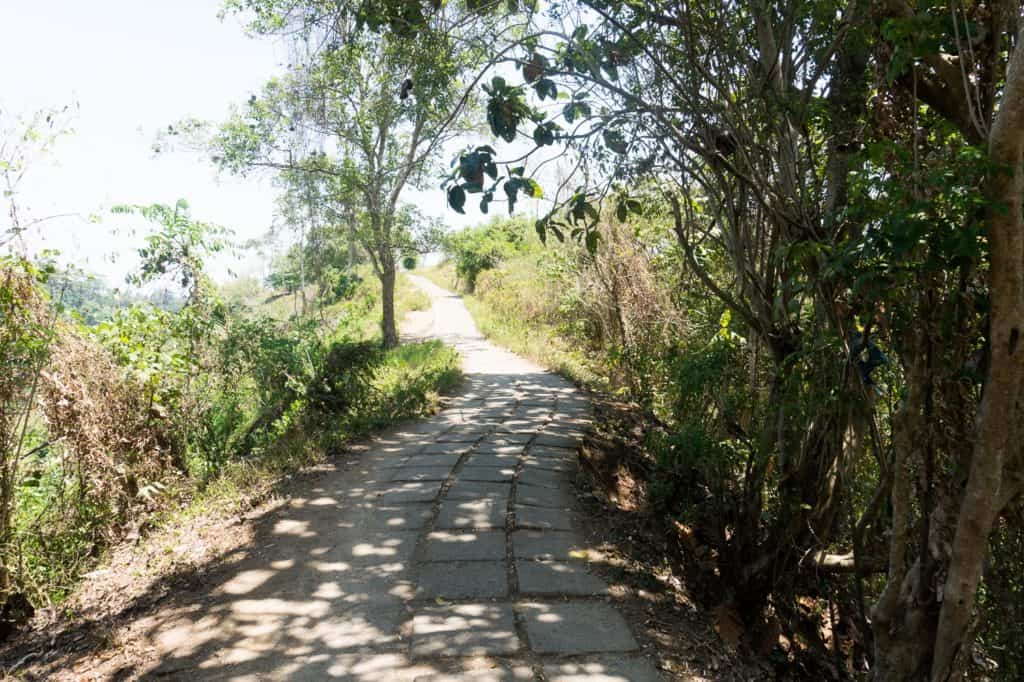
Did you even go to Bali if you didn’t take a swing photo?
Although this piece is written with a bit of a sarcastic attitude toward Instagram photos and travel, the truth is, social media, especially Instagram, has completely changed the way we travel. As a travel blogger and writer, I must admit I enjoy Instagram and have definitely financially benefited from collaborations on the platform due to my social media following. Personally, I love the creativity it allows and I enjoy discovering new gems thanks to those I follow. That being, we all have a responsibility to use it wisely.
Instagram makes us all want to visit the same spots to have the amazing experiences seen online. Overtourism is a huge, huge issue, and is negatively impacting locals, countries, and the environment. Animals and ethical tourism is also a huge issue. For example, would you have ever thought that the seemingly harmless act of taking a swing photo could somehow be linked to animal cruelty? I know I wouldn’t have.
When you’re travelling, consider places that are less visited as a way to spread out the economic benefit of tourism, avoid crowds, and experience new places and things you might not otherwise see. I’ve visited Ubud for the first time a few years ago- created my own DIY yoga retreat vibes, explored the Gili Islands, and may or may not have been scammed (still my most controversial blog post, for some reason), but on this visit it definitely felt more crowded, especially in and around Ubud.
Avoid businesses that don’t seem to treat animals ethically, and speak up if you see something out of place. Or, express concerns via online platforms like TripAdvisor, if you’re not comfortable saying something at the time. This can help future guests plan and avoid places they aren’t comfortable visiting.
Read more Bali travel planning articles here. Or, if you’re travelling around Asia, we can help there too.
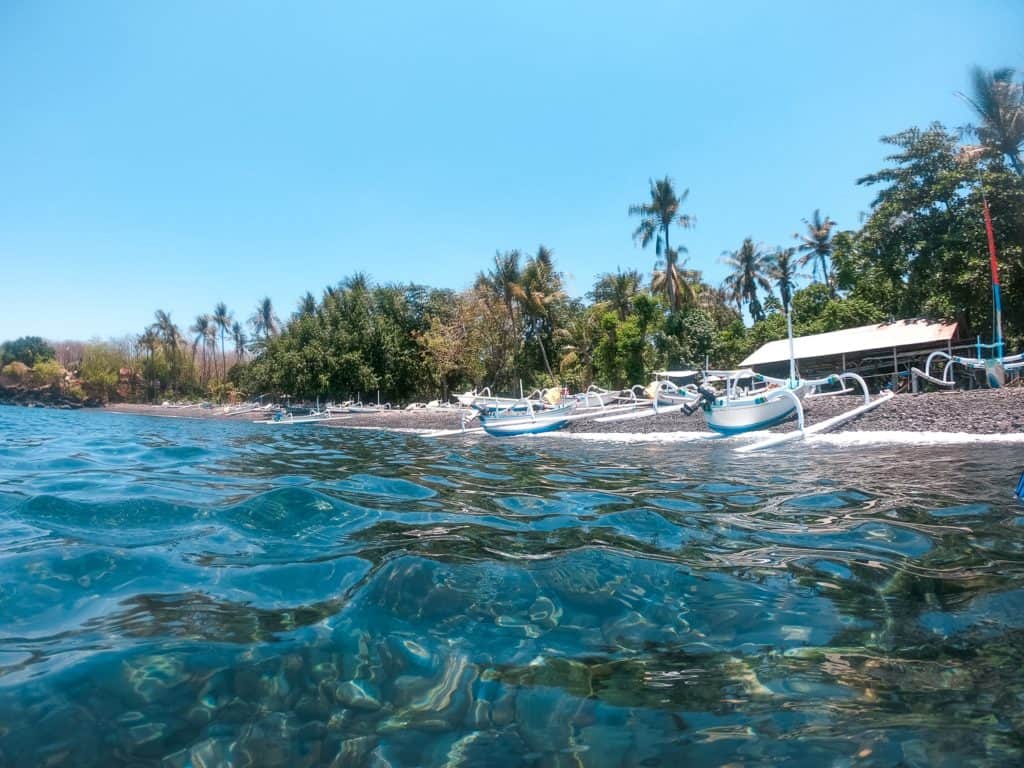
By all means, go to Bali! Stay, buy, and hire local, but consider also visiting places off the beaten path. Yes, Ubud is incredible, special, and a mecca for healing, yoga, and spirituality. But, if time allows, consider visiting other areas of the island too. Where? Well, that’s up to you- buy the guidebook, talk to friends, and research online. I will say we did a few days of diving in Amed, and it was a refreshing change from the more crowded parts of the island.
After all, how many rice terrace swing photos does the world *really* need? And, at what cost?
Links to learn more:
World Animal Protection, Civet Coffee
Bali Animal Welfare Association

